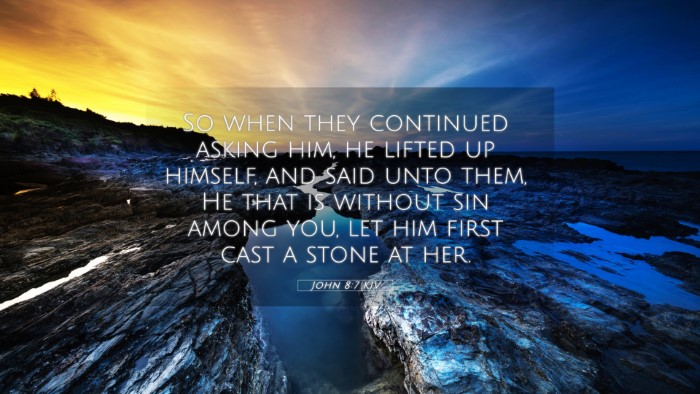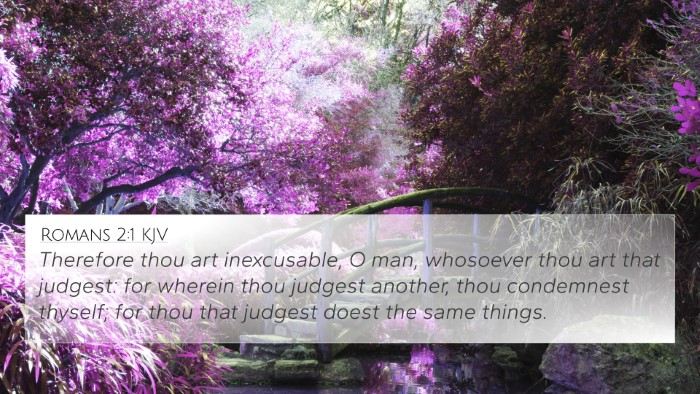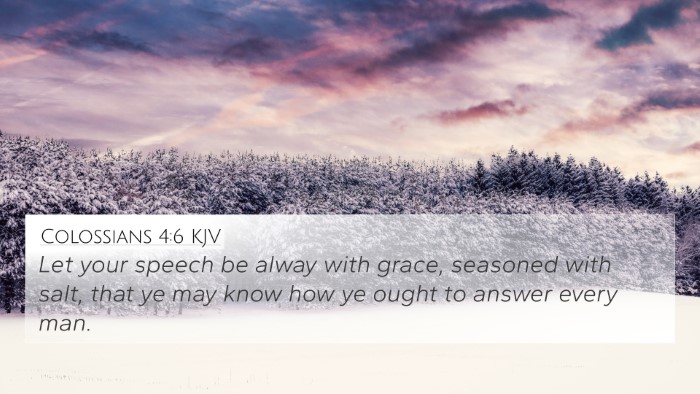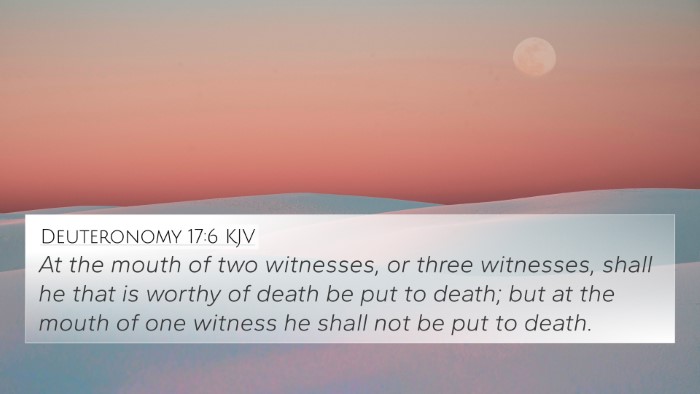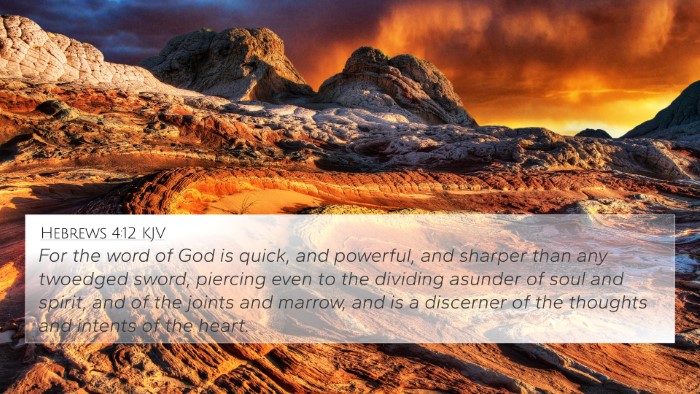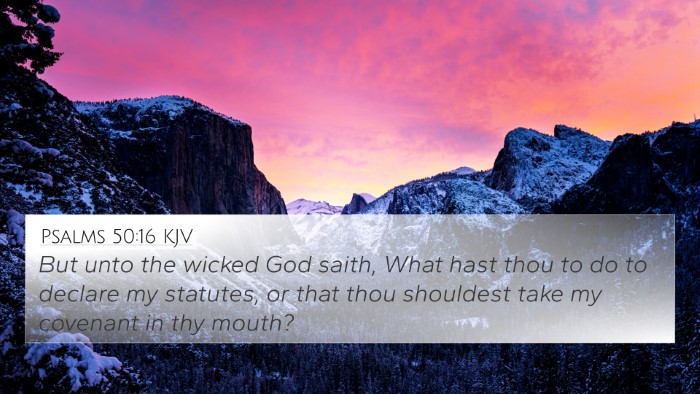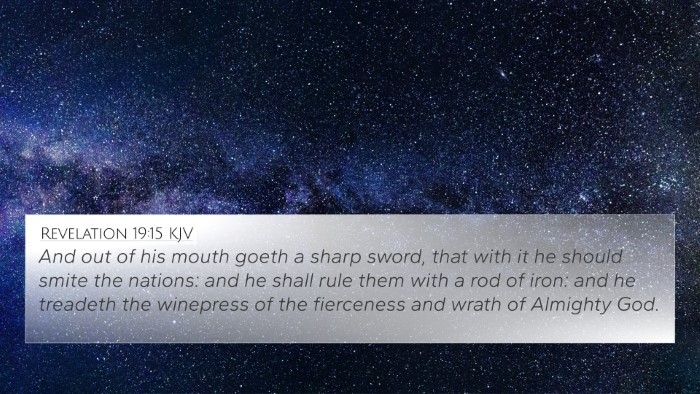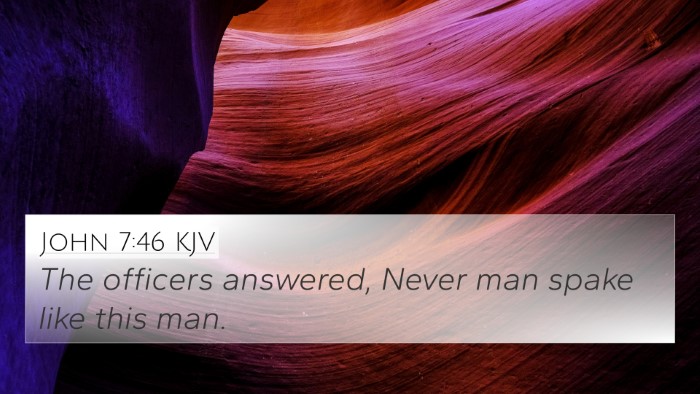Understanding John 8:7
John 8:7 states, "So when they continued asking him, he lifted up himself, and said unto them, He that is without sin among you, let him first cast a stone at her." This profound verse speaks volumes about judgment, mercy, and the nature of sin. Insights from public domain commentaries like Matthew Henry, Albert Barnes, and Adam Clarke provide a deeper understanding of this passage.
Verse Context and Meaning
According to Albert Barnes, this verse emphasizes God's mercy over judgment. The context reveals a woman caught in the act of adultery, brought forth by the Pharisees to test Jesus. They sought to trap Him into affirming the Mosaic Law, which commanded stoning for such offenses (Leviticus 20:10). In response, Jesus shifts the focus from the woman's sin to the sinfulness of those who would cast the first stone.
Matthew Henry elaborates on the nature of the accusers, suggesting that they were aware of their own imperfections. He highlights that Jesus' statement is not aimed at dismissing the law but promoting self-examination before passing judgment on others. This invitation for self-reflection encourages humility and compassion, and serves as a powerful reminder of our own shortcomings.
Adam Clarke notes that Jesus' response demonstrates a profound wisdom; it forces the accusers to confront their own sinfulness rather than proceed with legalistic judgment. The phrase "He that is without sin among you" is an invitation to acknowledge that everyone is flawed and in need of grace, highlighting the overarching theme of redemption present throughout the Gospel.
Thematic Connections
This verse presents several themes worth exploring, particularly concerning judgment and mercy. Here are some relevant Biblical connections:
- Romans 3:23 - "For all have sinned, and come short of the glory of God." This aligns with the principle in John 8:7 that none are without sin and thus all are in need of mercy.
- Matthew 7:1 - "Judge not, that ye be not judged." Jesus' teaching complements the message of humility before judging others.
- Galatians 6:1 - "Brethren, if a man be overtaken in a fault, ye which are spiritual, restore such an one in the spirit of meekness." This verse ties to the restoration aspect that should accompany any confrontation of sin.
- John 3:17 - "For God sent not his Son into the world to condemn the world; but that the world through him might be saved." This reinforces the redemptive nature of Jesus' mission.
- James 2:13 - "For he shall have judgment without mercy, that hath showed no mercy." This speaks to the consequences of lacking compassion in our interactions with others.
- Luke 6:37 - "Judge not, and ye shall not be judged: condemn not, and ye shall not be condemned: forgive, and ye shall be forgiven." Links directly with themes of judgment and mercy.
- 1 John 1:8 - "If we say that we have no sin, we deceive ourselves, and the truth is not in us." Echoes the necessity of recognizing our own sinfulness before we point to others.
Connecting John 8:7 with Other Scriptures
The connections between Bible verses deepen the interpretation of John 8:7 and illuminate the overarching message of grace and humility:
- Exodus 23:1-2 - Warnings against bearing false witness and taking sides without evidence align with the legalistic approach of the Pharisees.
- Proverbs 21:2 - "Every way of a man is right in his own eyes: but the LORD pondereth the hearts." Used to emphasize that human judgment can be flawed.
- Matthew 5:7 - "Blessed are the merciful: for they shall obtain mercy." This beatitude corresponds with the call to mercy found in Jesus' interaction with the woman.
- Colossians 3:13 - "Forbearing one another, and forgiving one another, if any man have a quarrel against any: even as Christ forgave you, so also do ye." This reflects the necessity of forgiveness in a community of believers.
Inter-Biblical Dialogue
The verse serves as a notable point of dialogue across the Testaments:
- Comparative Bible verse analysis shows a striking parallel between the teachings of Jesus and the moral principles laid out in the Old Testament.
- This verse exemplifies thematic connections surrounding God's justice tempered with mercy, a recurring theme from Genesis to Revelation.
- Linking Bible scriptures often reveals how Jesus fulfills the law by embodying its ultimate purpose—restoration rather than condemnation.
Tools for Bible Cross-Referencing
For those interested in deeper study, various tools can aid in cross-referencing Bible texts and providing a comprehensive view of the thematic linkages:
- Bible Concordance - A powerful resource for finding words and their occurrences throughout scripture.
- Bible Cross-Reference Guide - Provides direct links between verses based on common themes and words.
- Cross-Reference Bible Study - Methods that enhance understanding through the lens of interconnected verses.
- Cross-Referencing Bible Study Methods - Techniques for exploring Biblical intersections effectively.
- Bible Reference Resources - Various texts and guides that can help in understanding scriptural relationships.
Conclusion
John 8:7 invites believers to reflect on humility before God and others, recognizing our shared need for grace. It encourages a compassionate approach to judgment and emphasizes mercy as a core principle of the Christian faith. Through thematic exploration and cross-referencing, the verse resonates deeply within the broader narrative of the Bible, encouraging believers to engage with scripture meaningfully. As we examine the connections between Bible verses, we see a rich tapestry of God's mercy woven throughout His Word.

